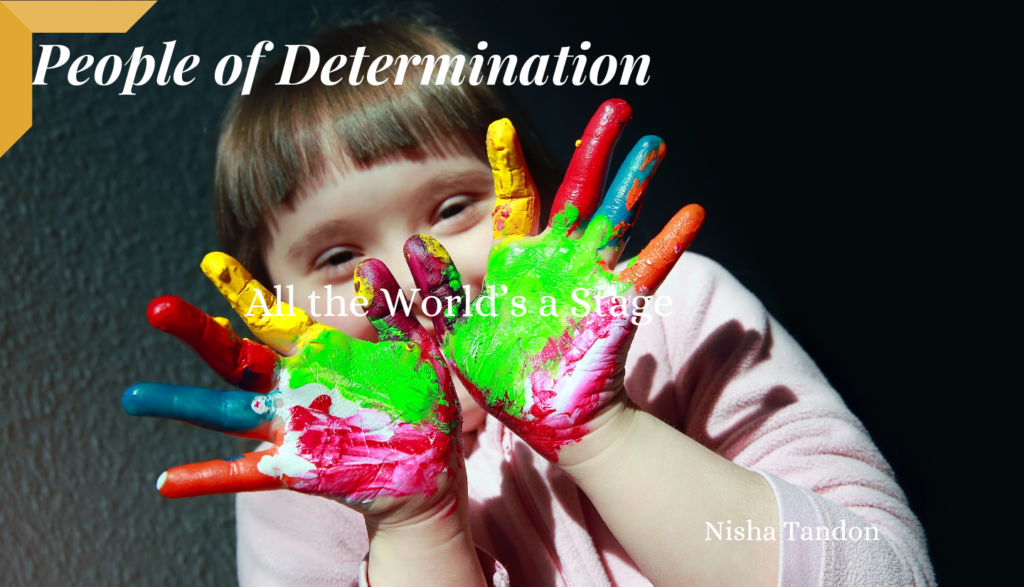
“If you feel as though you don’t fit in this world, you’re probably here to help create a new one.” ― Javier Galitó-Cava
And that is exactly what our star mentor, Rahima Amiraly set out to do. Rahima, with her vision and passion, desired to create a perfect world for her rising stars- those individuals, who have been diagnosed with various disabilities. Her association with them has been for nearly a decade now and she wishes to fulfill the dream of spreading her wings globally and getting them their due recognition. Rahima is the founder of Rising Stars under Starlight Talent and has worked in the education field for over 15 years. Having spent 9 years in the UAE, she has seen a need to build an initiative with the families she’s worked with. She believes in inclusion through music, dance, and drama and hence started UAE’s first Talent initiative for people of determination, Rising Stars. The term “People of Determination” was coined by HH Sheikh Mohammed bin Rashid Al Maktoum, the Vice President, Prime Minister as well as ruler of Dubai in 2016.
Through the performing arts, Rahima believes in providing an environment that celebrates and nurtures their talent, builds their confidence, and gives them a safe space to share their dreams. Rising Stars has worked in collaboration with Amir Khan, the boxing champion, Scott Welch, and Khalid Al Ameri, the popular influencer in the Middle East. These celebrities, through their networks, have raised the profiles of the stars by celebrating talents to be inclusive. The motto of the academy is to focus on TALENTS and not labels. Rahima passionately wants to create an inclusive world for people of determination, where they see a star’s talent before anything else and gives them a space within the entertainment industry.
When asked, what inspired her to work with people of determination, Rahima shared a very interesting story. At 16, she had a beautiful encounter with a young girl, diagnosed with autism. The child was restless in a queue and in seeking attention, she pulled out Rahima’s hair extensions. Surprisingly no one paid attention to the child but showed concern for Rahima. She felt deeply about society’s ignorance towards the basic needs of the special community. This incident inspired her to take up this cause strongly, and that became the genesis of her initiative, Rising Stars, which was later renamed Starlight.
Rahima feels there should be enough space in society for people with special needs, without fear of being judged or held accountable. It eases their struggles and gives them opportunities and a platform to shine beyond their diagnosis. These opportunities help them to improve their social, cognitive, and physical skills, and to learn an instrument or sing without apprehensions, or be a part of a group through music, dance, and acting.
On being asked if a career in the arts was feasible for these children, she responded in the affirmative. She feels, that if they have a passion for such activities, they should be given more career opportunities in music, media, and arts because research studies show that these therapies have a positive impact on their lives. She would love to have the active involvement of parents in organizing committees and taking responsibility to be more dedicated and involved to support the movement through performing arts.
One of their accomplishments was when the Rising Stars was given an opportunity to perform at Expo 2020 in Dubai where inclusion and equality were the highlights. The shows by Rising stars ended up being the favorites of the organizers and there was extensive media coverage by local channels.
Rahima’s vision for her stars is very clear. She sees these performers as ambassadors to other children globally and proves that the impossible is achievable, especially in developing countries that lack resources. One of the stars Iman says, “You can dream big, and anything is possible. No matter what, you can follow your dreams, and whatever the disability, it becomes your ability.” Truly inspiring!
Performing arts plays an integral part in the holistic development of individuals with special needs. It encourages them to expand their imagination and teaches them perseverance, creative problem solving, and the ability to focus which leads to success. These are used as a therapeutic measure in a professional setting as a means to connect young people with disabilities to their bodies, emotions, and self-esteem.
For people with disabilities, participating in creative arts programs has not always been possible. Even today in more enlightened times, we don’t see the level of participation, or inclusion, in arts programs among young people with disabilities as we see in able-bodied children and teens. Slowly but surely, theatre programs, visual arts classes, and dance troupes designed specifically for people with disabilities are providing an outlet for invention and creativity.
Nisha Tandon

0 Comments